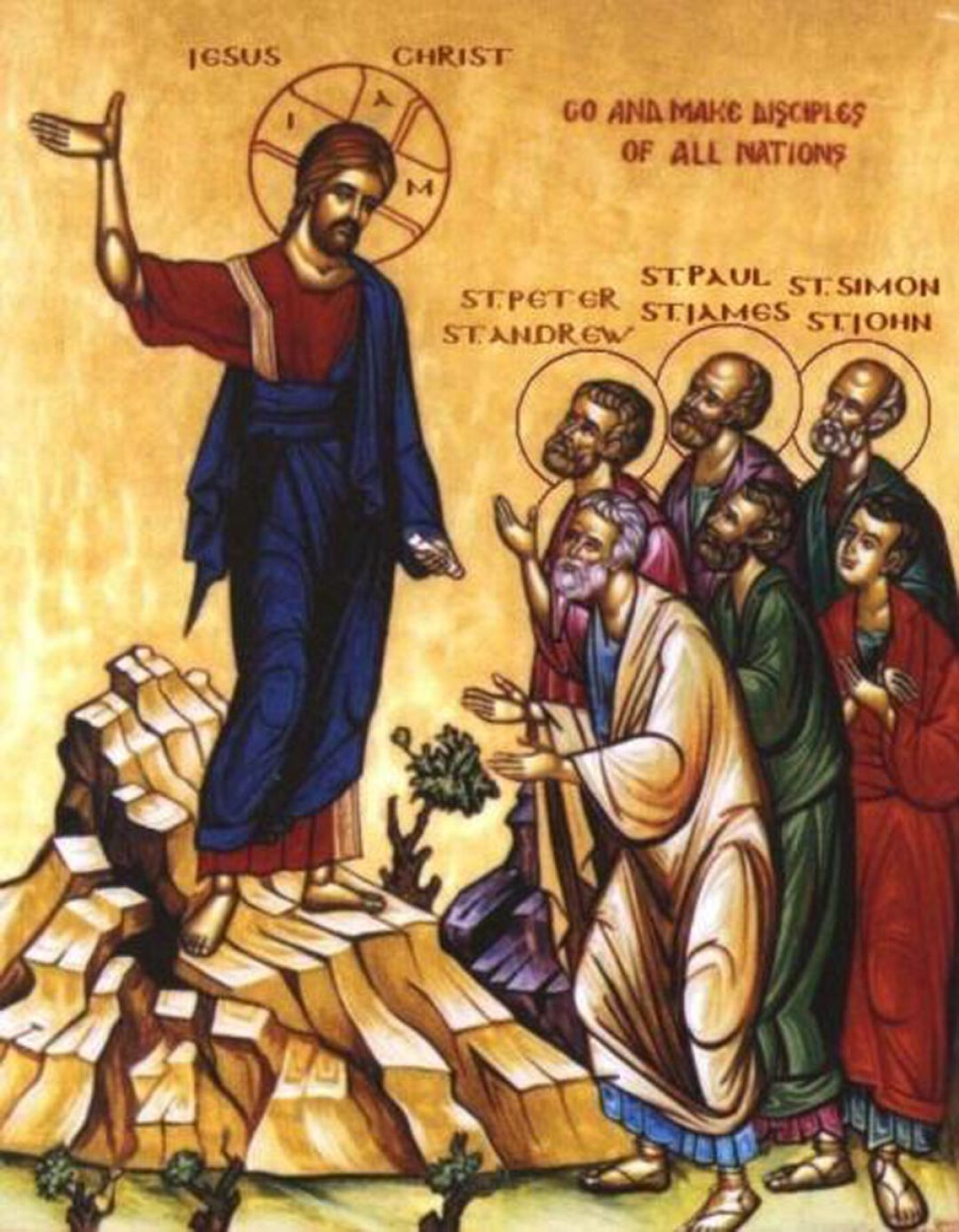
Jesus calls his Jewish disciples to "go" or, more literally, "as you are going," to make disciples of all nations (Matthew 28:16-20). From the word "go," the Lord was calling his people to cross-cultural ministry, including among people who would be hostile to them and against whom his people had great prejudice.
Of course, this cross-cultural commission would be challenging for His disciples, but for Jesus' mission to succeed, He promised two realities. He promised his "presence": "And behold, I am with you always, to the end of the age" (Matthew 28:20). And He promised "power": "But you will receive power when the Holy Spirit has come upon you, and you will be my witnesses in Jerusalem, Judea, and Samaria (whom his disciples were prejudiced against), and to the ends of the earth (including to the Romans whom they hated and feared)" (Acts 1:8).
Jesus' disciples had all they needed to achieve the Great cross-cultural Commission. They had even the same power that raised Christ from the dead (Ephesians 1:19-20, 3:20). However, they did not move out of Jerusalem despite Christ's command, presence, and power. They were comfortable experiencing a fruitful ministry among their fellow Jews (Acts 2-7). So, God, in his holy providence, used hardship (Jewish persecution) to move his people out of their comfort zone into his mission. Consequently, and primarily through the calling and ministry of apostle Paul, the great barrier between Jew and Gentile was brought down by the gospel (Ephesians 2:11-22).
Today we also have the power of the Spirit and the power of the Gospel (Romans 1:16-17) to break down the walls that separate people and grant them grace to repent, believe, and become one in Christ. So, if the wall of hostility and cultural differences that separated Jews and Gentiles could be destroyed, how much more can our barriers between Americans, Africans, Hispanics, or Asians be removed to become that multiethnic church that our Lord Jesus Christ calls us to be?
I am sure we understand and are willing to accomplish Jesus' Great Commission in our churches and Diocese. However, I feel we often set aside the "cross-cultural" feature of Jesus' Great Commission. One of the problems in our American society is that sometimes we worship (perhaps unconsciously) our cultural way of doing everything, including in the church. This issue can cause us to feel uncomfortable and intimidated when someone makes us see the need to change our forms and methods to reach different people because we often wish for the nations to worship and become like us. Realizing this reality is just a matter of looking at our worship, teaching, and leadership styles or observing what people we choose to prepare to lead our churches and ministries (I will talk more about this in the coming months).
Frequently we feel guilty and shameful regarding our lack of commitment to cross-cultural ministry, so I want to finish with a question that can help us find balance. The question is, are we not obeying the Great Commission if we do not have a multiethnic church or ministry? I don't think so. I believe that a church should reflect the community in which it resides. For instance, if the community comprises all White Americans, then it should not be considered a failure for only being made up of White Americans. Some towns and communities are and will remain mono-ethnic/cultural for various reasons (geographic, demographic, language, etc.) However, the reality is that we see fewer and fewer cities and places comprising only one ethnic group in this country. Therefore, as a church, we must be aware, prepared, and willing to obey Jesus' Cross-cultural Commission, but by never forgetting that we have received all we need (God's word, presence, and power) to reach the nations that have come to us.
May the Lord bless your life and ministry.
The Rev. Sergio Sapunar.

